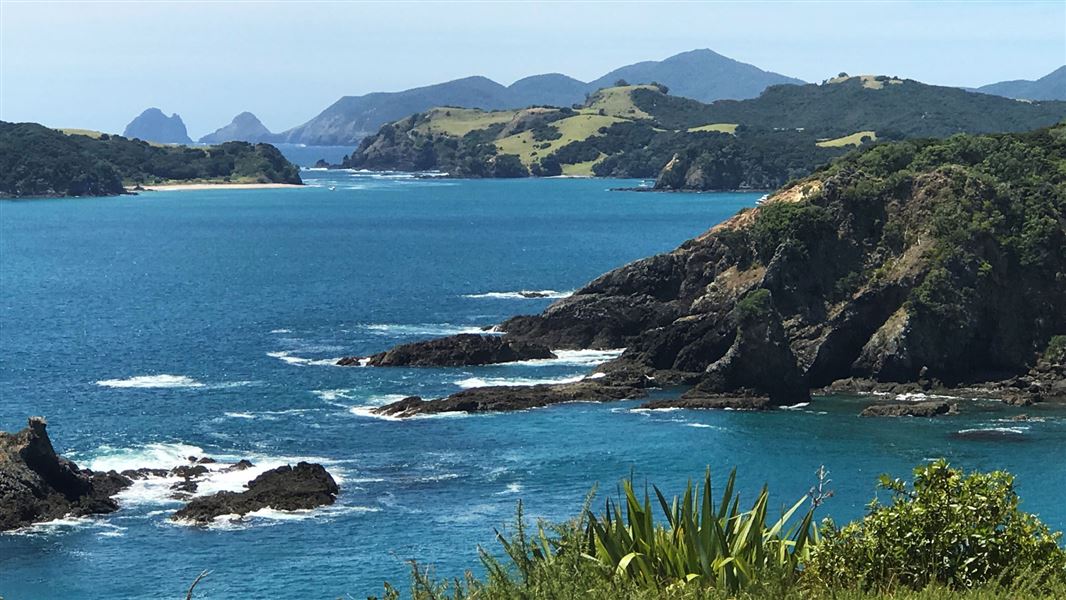Beautiful bays and picturesque beaches provide plenty of opportunities for swimming and picnicking. Alternatively, you may simply want to relax and enjoy the views especially from Hikurangi pa.
Brochures
Moturua Island Scenic Reserve is situated in the central part of Te Pēwhairangi (Bay of Islands) Marine Mammal Sanctuary. There are restrictions you need to follow while travelling in Te Pēwhairangi (Bay of Islands) Marine Mammal Sanctuary.
Restrictions while you're in Te Pēwhairangi (Bay of Islands) Marine Mammal Sanctuary.
The four main bays, Otupoho, Waipao, Mangahawea, and Waiwhapuku all offer safe anchorage for visitors. The channel between Motuarohia Island and Moturua Island is a marine mammal safe zone.
Restrictions for vessels in the safe zones.
This stunning island has four lovely beaches and an easy walking track around the island. You can access the archaeological sites from the track.
The reserve is part of the Bay of Islands Maritime and Historic Park.
- Walks in this area can include sections near steep cliffs. Supervise children when near cliffs and keep on the track at all times.
- Bay of Islands Maritime and Historic Park bylaws apply.
- Rubbish is not collected – take your rubbish with you. There may be rubbish facilities during summer.
- Camping in the Bay of Islands is only available on Urupukapuka Island.
This reserve is within Te Pēwhairangi (Bay of Islands) Marine Mammal Sanctuary.
Water safety
If you plan to enjoy the water, learn how to stay safe when swimming, boating and fishing.
Vegetation
Moturua Island is a scenic reserve with rapidly regenerating native forest. The dominant vegetation is manuka and kanuka which creates an ideal nursery for young shrubs and tree ferns. Young pohutukawa thrive along the coastal fringe.
Wildlife
Pause a moment, look and listen. You may be lucky enough to see and hear the North Island robin/toutouwai, North Island saddleback/tīeke, whitehead/pōpokotea and red-crowned parakeet/kākāriki. They share Moturua with fantails, silver eyes, finches, sparrows, tuis, blackbirds and thrushes who enjoy the sheltered, lush habitat.
There are also some special threatened species who roam the island. New Zealand dotterel/tūturiwhatu can be seen and heard on the beaches, having been reintroduced to the island after becoming regionally extinct. In the bushes, you may even catch a glimpse of a North Island brown kiwi as it rushes past.
DOC's work
- Ongoing historic research
- Project Island Song – a major restoration project
- Te Pēwhairangi (Bay of Islands) Marine Mammal Sanctuary came into effect 15 December 2021.
Moturua Island has had a long association with humans from the earliest Polynesian settlers through to the early European explorers such as Cook and du Fresne. Read about Moturua Island's history.
Check you are pest-free
Check, clean, and seal your gear to ensure you don't bring pests, soil, and seeds.
DOC Customer Service Centre
| Phone: | 0800 275 362 |
| Email: | bayofislands@doc.govt.nz |
| Address: | Pewhairangi / Bay of Islands Office |
